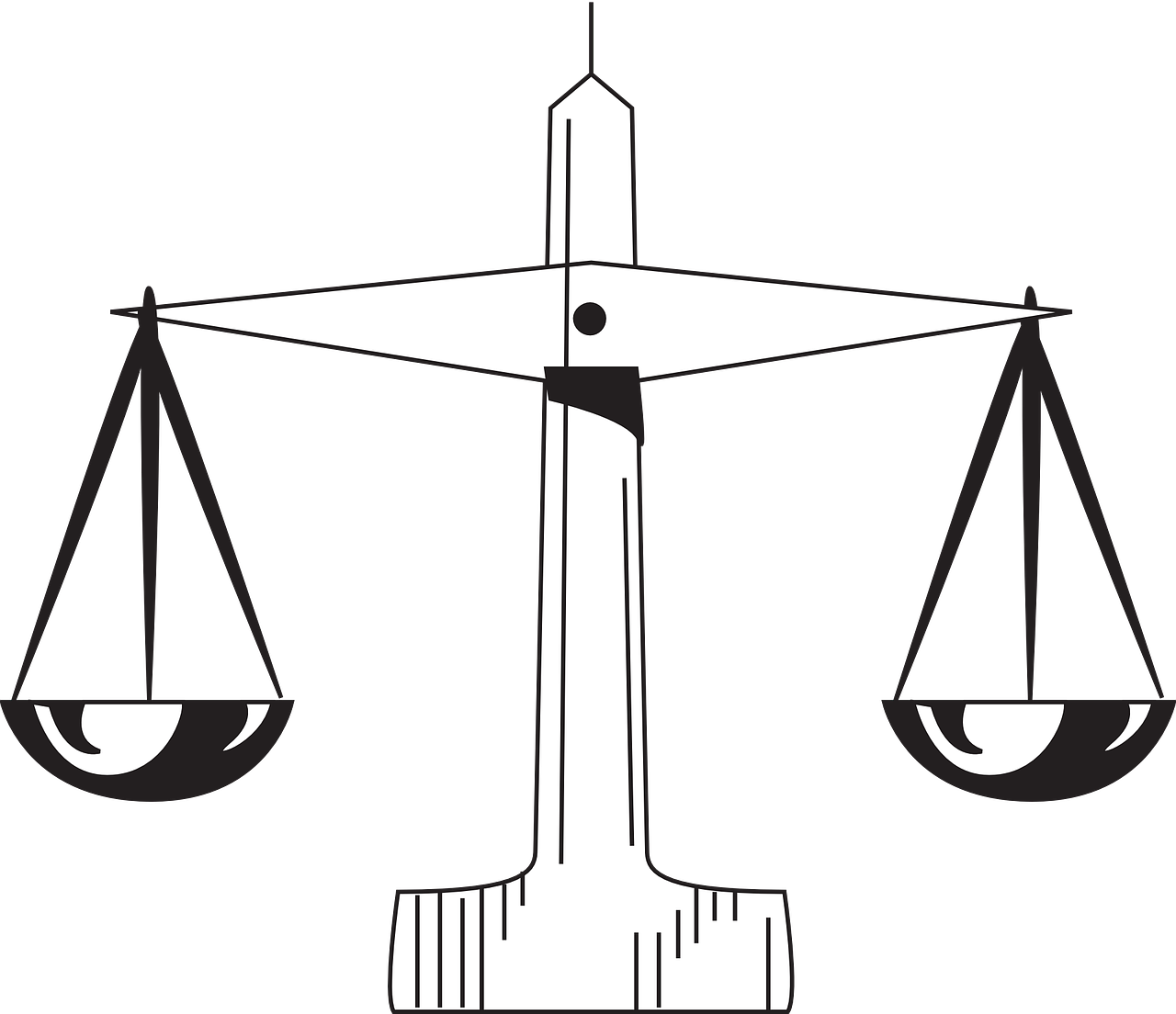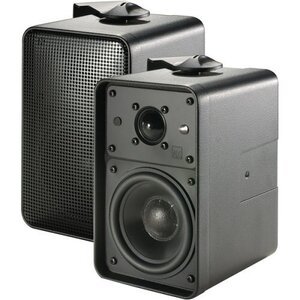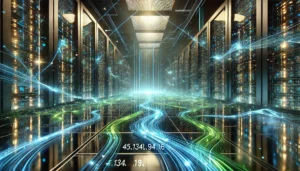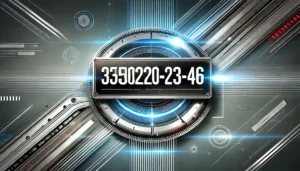2607:fb91:15af:7350::62 Explained: Simple Guide to IPv6
Introduction: What is 2607:fb91:15af:7350::62?
Have you ever seen something like “2607:fb91:15af:7350::62” and wondered what it means? This is actually a type of IP address, but it’s not the kind we usually see. Instead of the common IPv4 addresses, like 192.168.1.1, this is part of a newer version called IPv6.
IPv6 addresses like “2607:fb91:15af:7350::62” help us in a world where we need more addresses for the internet. As more devices connect, the older IPv4 addresses run out, so IPv6 steps in with much larger possibilities. Let’s learn more about how this works and why it’s important for the internet.
What is 2607:fb91:15af:7350::62 and Why is it Important?
An IPv6 address, like “2607:fb91:15af:7350::62,” is a unique identifier for devices on a network. It helps the internet know where data needs to go, just like a house address tells a mail carrier where to deliver a letter.
The internet is full of devices that need to communicate with each other. Without addresses like “2607:fb91:15af:7350::62,” devices wouldn’t know how to send information. This makes IP addresses a crucial part of how the internet works.
In the past, most of the internet used IPv4, but now IPv6, which includes “2607:fb91:15af:7350:62,” offers many more addresses. IPv4 is limited to around 4.3 billion addresses, while IPv6 allows for almost infinite combinations, ensuring that we won’t run out anytime soon.
How 2607:fb91:15af:7350::62 Works in the IPv6 System
IPv6 is a new version of the internet address system, and “2607:fb91:15af:7350::62” is one example of it in action. IPv6 was developed to solve the problem of running out of addresses. Every connected device, like your computer or smartphone, needs a unique address to send and receive data.
An IPv6 address, such as “2607:fb91:15af:7350::62,” is much longer than an IPv4 address. While IPv4 uses 32 bits to create an address, IPv6 uses 128 bits. This creates a much larger number of possible addresses, ensuring the internet can keep growing.
With so many more addresses available, IPv6 can support the increasing number of devices we use today. The format, like “2607:fb91:15af:7350:62,” might look complex, but it follows a specific pattern that makes it easy for computers to understand.
Why IPv6 Addresses Like 2607:fb91:15af:7350::62 Are Different From IPv4
IPv4 addresses are much shorter than IPv6 addresses, and this is one of the key differences. For example, an IPv4 address looks like “192.168.1.1,” while an IPv6 address like “2607:fb91:15af:7350::62” is much longer. The additional length allows for a far greater number of unique combinations.
IPv4 was created when the internet was much smaller, and no one imagined how many devices would eventually connect. Over time, the available addresses ran out, leading to the need for IPv6 addresses like “2607:fb91:15af:7350:62.”
IPv6 solves this problem by offering many more addresses. In fact, there are enough IPv6 addresses to assign one to every grain of sand on Earth. This ensures that every new device can get its own address, making the internet more efficient.
Benefits of Using 2607:fb91:15af:7350::62 in Modern Technology
Modern technology depends heavily on the internet, and having enough addresses is critical. IPv6 addresses like “2607:fb91:15af:7350::62” provide more than enough room for all the devices that connect to the web today.
IPv6 improves things like internet speed and connectivity. With so many devices, including smartphones, computers, and smart home gadgets, having enough unique addresses is vital. IPv6, with addresses like “2607:fb91:15af:7350:62,” helps prevent confusion by giving each device its own specific address.
Another benefit of using IPv6 is that it includes features designed for better security. This helps keep internet users safe, making it harder for attackers to hijack connections. Overall, IPv6 addresses such as “2607:fb91:15af:7350::62” make the internet faster and more secure.
Exploring the Meaning Behind 2607:fb91:15af:7350::62
At first glance, an IPv6 address like “2607:fb91:15af:7350::62” may seem like a random jumble of letters and numbers. However, each part of the address has a specific meaning. IPv6 addresses are divided into sections, with each section playing a different role in identifying the device or network it belongs to.
The first part of the address, “2607,” identifies the network to which the device is connected. This network could be from a specific internet provider or organization. The remaining sections, like “fb91:15af:7350::62,” help to further pinpoint the exact location of the device on the internet.
Understanding these sections can be complicated, but the good news is that users don’t usually need to worry about the details. Devices, servers, and routers handle the complexities of “2607:fb91:15af:7350:62” automatically, making sure the data gets to the right place.
How to Find Your Own IPv6 Address Like 2607:fb91:15af:7350::62
If you’re curious about your own IP address, finding it is easier than you might think. Just like “2607:fb91:15af:7350::62” is unique to a device, every device that connects to the internet has its own IP address. To find yours, you can use tools built into your device or use online websites that show your public IP address.
For most users, checking your IP address is as simple as opening your computer’s network settings. Whether it’s an IPv4 or an IPv6 address, your device will display the address automatically. If your internet connection uses IPv6, you might see a long address similar to “2607:fb91:15af:7350::62.”
If you’re using a smartphone or tablet, the process is similar. Under your device’s Wi-Fi settings, you can see which IP address has been assigned to you, and it may resemble “2607:fb91:15af:7350:62.” Keep in mind that your public IP address may change depending on your network and location.
Common Uses for 2607:fb91:15af:7350::62 and Other IPv6 Addresses
IPv6 addresses like “2607:fb91:15af:7350::62” are used by all kinds of devices that connect to the internet. These can include computers, smartphones, tablets, smart TVs, and even household appliances like refrigerators or lightbulbs. As the internet grows, more devices need unique IP addresses to communicate.
With the rise of smart homes, where devices like thermostats and security cameras are connected, IPv6 addresses like “2607:fb91:15af:7350::62” ensure that there are enough addresses for everything. Each device needs its own address to send and receive data, making it possible for them to work together efficiently.
IPv6 also plays a big role in cloud computing, where servers store and manage data for websites and apps. Addresses such as “2607:fb91:15af:7350::62” are used to make sure data reaches the correct servers, keeping everything running smoothly. Without these addresses, it would be harder for devices to communicate and share information.
The Future of Internet Addresses: Understanding 2607:fb91:15af:7350::62
As more devices become part of our everyday lives, the need for unique IP addresses will continue to grow. IPv6 addresses like “2607:fb91:15af:7350::62” are part of this future, ensuring that every new device can connect to the internet without running out of addresses.
In the past, IPv4 was enough for the relatively small number of internet users. But today, with billions of devices online, IPv6 is necessary. Addressing this demand with longer addresses like “2607:fb91:15af:7350::62” allows the internet to expand without any limits.
As we look toward the future, IPv6 will become even more important, helping to power technologies like virtual reality, autonomous cars, and smart cities. These innovations will rely on addresses like “2607:fb91:15af:7350::62” to keep the flow of data smooth and uninterrupted.
How 2607:fb91:15af:7350::62 Helps with Internet Speed and Connectivity
One of the many advantages of IPv6 addresses like “2607:fb91:15af:7350::62” is that they improve internet speed and connectivity. With more devices sharing the internet, IPv4 addresses became too crowded, leading to slower speeds and connection problems. IPv6 addresses, however, solve this issue.
Each device with an address like “2607:fb91:15af:7350::62” can connect directly to the internet without needing additional layers or complicated translations. This streamlines the connection process and ensures data gets where it needs to go faster, which is great for things like video calls, online games, and streaming.
Improved connectivity also means fewer delays when sending or receiving information. Addresses like “2607:fb91:15af:7350::62” help prevent bottlenecks by making sure every device has its own clear path to the internet. This helps improve the overall performance of the internet for everyone.
Troubleshooting Tips for Issues Related to 2607:fb91:15af:7350::62
Even though IPv6 addresses like “2607:fb91:15af:7350::62” offer many benefits, users may sometimes experience issues. For instance, if your connection isn’t working as expected, there are simple steps you can take to troubleshoot.
First, check if your device is connected to the internet. If you’re using a Wi-Fi network, make sure you’re within range of the router. Sometimes, connection problems might be caused by weak signals rather than issues with the address “2607:fb91:15af:7350::62” itself.
If the issue persists, restarting your device can often solve temporary glitches. You can also try refreshing your IP address or checking if your device is set to use IPv6. If none of these steps work, contacting your internet service provider may help you resolve issues related to “2607:fb91:15af:7350::62.”
How 2607:fb91:15af:7350::62 Plays a Role in Internet Security
IPv6 addresses like “2607:fb91:15af:7350::62” are not just important for connectivity—they also play a role in keeping the internet secure. IPv6 has built-in security features that make it harder for attackers to intercept or tamper with data.
One of these features is called IPsec, which helps protect information being sent and received using addresses like “2607:fb91:15af:7350::62.” This encryption makes sure that data cannot be easily accessed by unauthorized users. It’s like locking a door to keep your private information safe.
Additionally, IPv6 helps reduce certain types of attacks, like address spoofing, where hackers pretend to be someone else. With addresses like “2607:fb91:15af:7350::62,” it becomes harder for attackers to manipulate the system, making the internet safer for everyone.
Conclusion: Why 2607:fb91:15af:7350::62 Matters for the Future of the Internet
In conclusion, “2607:fb91:15af:7350::62” represents the future of internet addresses. With more devices coming online every day, IPv6 addresses like this one are essential to keeping the internet functioning smoothly. These addresses offer better speed, more security, and room for all the technology that continues to evolve.
As we move into a more connected world, knowing about addresses like “2607:fb91:15af:7350::62” helps us understand how the internet works behind the scenes. While the technical details might be complex, the important thing to remember is that IPv6 addresses are here to make sure our internet experiences are faster, safer, and ready for the future.














Post Comment